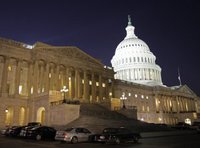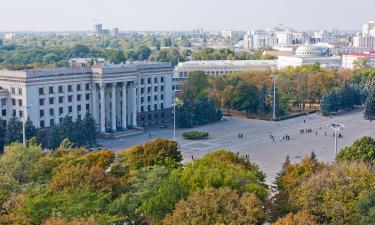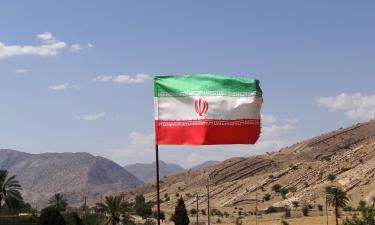Oppressive American democracy: The prophecies of Tocqueville
In democratic republics the body is left free, and the soul is enslaved

By Nicolas Bonnal
Tocqueville is famous for his analysis of American democratic system; yet he is unknown for his criticism of this system, given that Self-celebration has become the new "opium of the people" in the west. At the time of Karl Marx, different minds, with different sensibilities, such as Edgar Poe, Chateaubriand, Gogol or Balzac, all conservative or monarchic, observe the coming of a new law, based on money, banality and tyranny of majority. I insist on these times because our changing world doesn't change a lot. Its arrogant curtain of technology cannot mask its common reality.
Tocqueville seeming the most liberal among the group, I cannot resist the temptation to give his best sentences about the new age made in America.
Tocqueville prophesises a new kind of global despotism; it will replace that of aristocratic times founded on class, honour and poetry. He specifies this despotism will enslave the mind but not - or less - the body:
But it would seem that if despotism were to be established amongst the democratic nations of our days, it might assume a different character; it would be more extensive and milder; it would degrade men without tormenting them...I think then that the species of oppression by which democratic nations are menaced is unlike anything which ever before existed in the world...
We all know that we live now in a global shopping centre controlled from sky-satellites, may we be in Dubai, London or Los Angeles. Trade is the ubiquitous present of the world and all great cities finish not to challenge, but to look each other. Well, Tocqueville had already under his eyes this weird and sinister sight:
I seek to trace the novel features under which despotism may appear in the world. The first thing that strikes the observation is an innumerable multitude of men all equal and alike, incessantly endeavouring to procure the petty and paltry pleasures with which they glut their lives.
According to Tocqueville, we assist since the French revolution a rise of the state and all kind of administrations whose role is to solve any kind of worry, as long as neo-liberal rhetoricians allow it! As Nietzsche, who later denounces the coming last man, a petty-bourgeois era, to put it in Marxist terms, Tocqueville foresees a profit-driven humanity, involved in material concerns and completely -like in France- dependent of the state and its generous yet indebted activity.
For their happiness such a government willingly labours, but it chooses to be the sole agent and the only arbiter of that happiness: it provides for their security, foresees and supplies their necessities, facilitates their pleasures, manages their principal concerns, directs their industry, regulates the descent of property, and subdivides their inheritances - what remains, but to spare them all the care of thinking and all the trouble of living?
The naissance of such modern mediocrity, founded on commerce and administration, which Marx denounces too in many of his books (see the 18th Brumaire), if of course connected with mind-programming. This is what we call the press, the media, whose role in western civilization is not keeping us informed but to shape our mind and our way of life (IE, spending money).
In America three-quarters of the enormous sheet which is set before the reader are filled with advertisements, and the remainder is frequently occupied by political intelligence or trivial anecdotes...
To paralyze and freeze the movement of the mind (we know that for Russian thinker Alexander Kojeve America is the land of the end of History), there is one solution: the only way to neutralize the effect of public journals is to multiply them indefinitely. Tocqueville describes too avidly and cruelly the American journalist, who happens to be one the most important character of the last centuries. And he comes to specify what will be media's future matters of interest:
The characteristics of the American journalist consist in an open and coarse appeal to the passions of the populace; and he habitually abandons the principles of political science to assail the characters of individuals, to track them into private life, and disclose all their weaknesses and error.
Think of American recent lamentable political debates! Tocqueville also emphasizes the weakness of the American majority, victim of her own fabricated adoration ("we are the greatest nation of all time", as boasted once Condoleeza...). And no writer can challenge this self-adoration:
No writer, whatever be his eminence, can escape from this tribute of adulation to his fellow-citizens. The majority lives in the perpetual practice of self-applause, and there are certain truths which the Americans can only learn from strangers or from experience.
This is why so many American geniuses finished their lives miserably (Poe, Hawthorne, Melville) or had then to expatriate (Hemingway, Miller and the lost generation). Unfortunately we can say that today the American model has established itself in so many places that we leave in a reduced and "unified world where exile has become almost impossible" (Guy Debord).
Let us finish by a curious and amusing forecast about our geopolitical future: at the beginning of the nineteenth century, Tocqueville foresees the coming of two great nations which will not cease to challenge each other:
There are, at the present time, two great nations in the world which seem to tend towards the same end, although they started from different points: I allude to the Russians and the Americans... Their starting-point is different, and their courses are not the same; yet each of them seems to be marked out by the will of Heaven to sway the destinies of half the globe.
It must be said that at this time America was partly Russian (think of Fort Ross) and that Russia had to face Spain, not Washington, in California; and that later unfortunate tsar Alexander would sell cheaply Alaska to the coming great nation!
Nicolas Bonnal
Subscribe to Pravda.Ru Telegram channel, Facebook, RSS!



